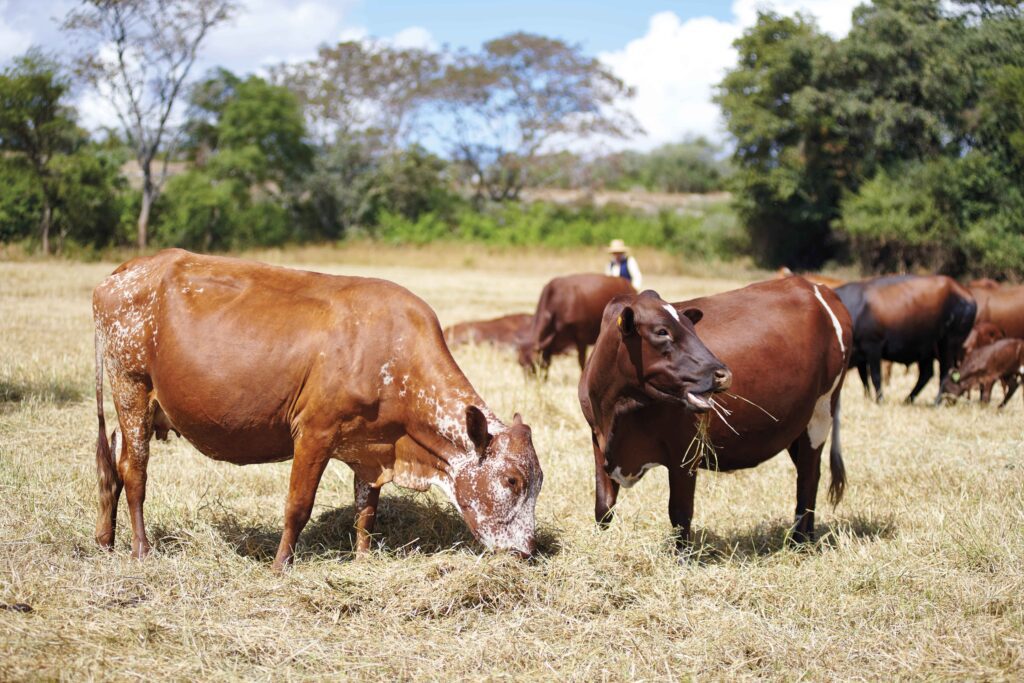The International Livestock Research Institute (ILRI) is taking part in a new $27.4 million global initiative aimed at reducing methane emissions from livestock by leveraging natural variations in animal digestion. The initiative will support research and breeding programs across several continents, including Africa, North and South America, Europe, and Oceania, with the goal of identifying and scaling up climate-efficient livestock.
This initiative is a major step in the global effort to accelerate public-good research on enteric methane methane produced during digestion in ruminants such as cattle. By developing an open, coordinated research framework that spans different countries, breeds, and species, the project aims to deliver practical solutions that reduce emissions while supporting the livelihoods of farmers around the world.
ILRI’s involvement highlights its leadership in the Global Methane Genetics Initiative and its ongoing contributions to the Low Methane Forage project. These complementary efforts tackle the problem of enteric methane emissions from two angles: genetics and nutrition. Both strategies are among the most scalable and effective approaches for reducing livestock emissions without compromising animal productivity or farmer income.
The genetics component of the initiative will focus on identifying naturally low-emitting cattle within diverse African production systems. This will involve screening over 100,000 animals and collecting methane emissions data to feed into breeding programs. By incorporating low-emission traits into public and private breeding pipelines, the initiative aims to offer long-term, cost-effective solutions to the climate crisis.
In parallel, the Low Methane Forage project seeks to identify and promote tropical forages that are both high-yielding and naturally suppress methane production in the rumen. These forages are particularly suited for smallholder and pastoral systems common across the Global South. Together, these initiatives offer integrated, climate-smart livestock solutions tailored to the real-world needs of livestock keepers.
One of the key strengths of this approach is that it uses existing traits within herds, meaning farmers won’t need to make changes to feeding practices or invest in new infrastructure. This makes it easier for them to adopt the innovations and become active participants in climate mitigation strategies, without disrupting their existing operations.
Methane is a particularly potent greenhouse gas, with over 80 times the warming potential of carbon dioxide over a 20-year timeframe. Cattle are the largest contributors to methane emissions from the livestock sector. However, research shows that even within the same herd, some animals emit up to 30% less methane than others. By selecting and breeding these naturally lower-emitting animals much like traditional selection for traits like milk yield or fertility farmers can achieve permanent reductions in emissions.
Over the next two decades, this approach could reduce methane emissions from cattle by 1.0 to 2.0% annually, potentially reaching a cumulative reduction of 30%. This progress would be achieved without compromising productivity or requiring major changes to farm practices.
This initiative is the result of collaboration among leading research institutions, agricultural organizations, and global partners. It brings together expertise in genetics, animal science, and breeding to develop innovative solutions that benefit both the climate and farming communities. By aligning research with national and regional priorities, it supports a sustainable future in which livestock systems are not only productive and resilient but also environmentally responsible.

